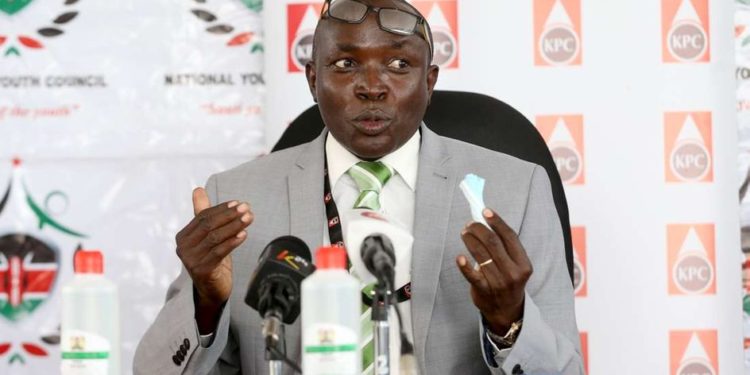The Kenya Pipeline Company went for its contracted security firm after an unknown quantity of fuel was pilfered last year at Mlolongo in Machakos County.
The KPC turned its guns on the firm hired to ensure surveillance of the infrastructure along the pipeline wayleave after crooks dug an underground tunnel and puctured the 20-inch Mombasa-Nairobi pipeline, stealing fuel for months without being detected.
The war with its guards shifts the focus to the ‘small fish’ even after Kenya Pipeline bosses then admitted that a cartel would not have operated without an insider who would inform them on which product to tap at what time since the same pipe carries kerosene, diesel and petrol at different times.
MULTIPLE LAYERS
The KPC is also said to have had multiple layers of surveillance on the pipeline, including vehicles and a helicopter, narrowing chances that they had failed to detect the theft for months.
While appearing before Senate Select Committee on Energy on Thursday, KPC managing director Irungu Macharia said Hatari got a court order to block the contract termination last year and the matter is still in court.
“On December 13, 2019, the court ruled on the interim application by Hatari Security retaining KPC from replacing the security company and went ahead to cancel KPC’s letter of termination to Hatari. The main suit in relation to the illegality of the letter of termination of the contracts is still pending for determination before court,” he said.
Police rounded up at least 10 suspects after the incident as investigations into a well-organised fuel theft from the pipeline deepened. Most of those arrested are said to have been part of the fuel distribution network as well as being used to transact proceeds of the stolen product.
Others arrested since the June 2019 pilferage comprise two suspects found loading a water bowser with petrol at a fenced compound adjacent to the pipeline and the lady owner of the truck.
MAIN PIPE
One of the suspects found on the compound loading petrol into the truck had reportedly escaped through an underground tunnel after police allowed him to turn off the tap from the main pipe that was flooding the area with petrol during the night raid.
Suspects had meticulously stolen fuel undetected for months after they concealed an adjacent plot with a yellow iron sheet, dug a tunnel from the compound down to the newly built 20-inch fuel pipeline from Mombasa and used blue water bowsers labelled ‘clean water’ to ferry an unknown volumes of fuel for sale.
The Energy and Petroleum Regulatory Authority piled pressure on the firm for omitting the critical leak detection systems from the new multibillion pipeline despite existing in the approved plans
INSPECTION
As a result it began a search for an inspection service provider after the pipeline experienced an unexplained leakage in Makueni barely a year into operations, loading the firm with a costly cleanup bill including community interventions.
The costly oversight on the Sh48 billion pipeline made it as bad as the leak-prone old one that was being replaced leaving pilferages like the one at Mlolongo area to go undetected.
Leak detection was meant to be included in the design stage, but it remains unclear how the feature was omitted in what later caused a blame game between KPC and the Lebanese contractor, Zakhem International.
The Mlolongo pilferage was the fourth such reported cases in under two years, shining the spotlight on the pipeline over a possible large-scale of loss of the product in its 1,342-kilometre network countrywide.









